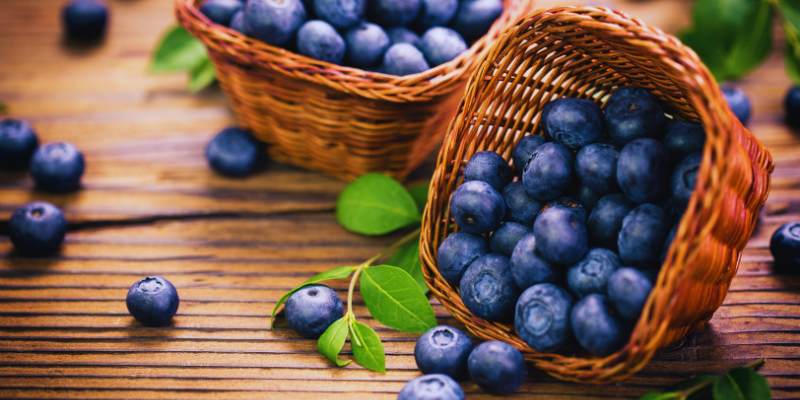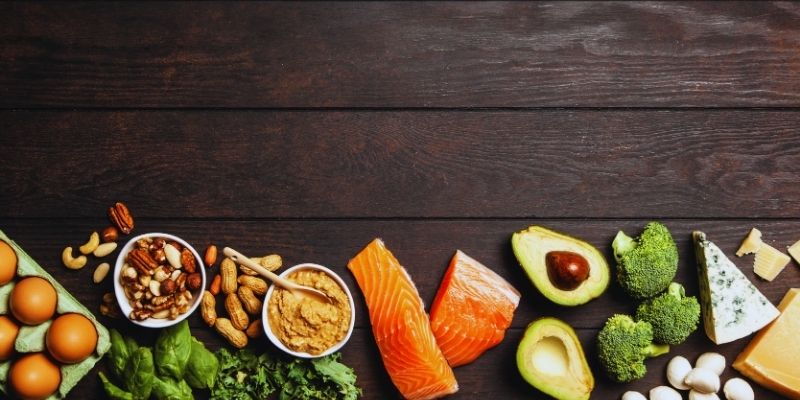In this fast-paced life where the brain remains busy processing thoughts or solving problems, staying focused and keeping the memory sharper is challenging. But what if you can boost your brainpower by changing your eating habits? Yes, you heard it right. Remember that eating a healthy diet is not only essential for a healthy body but also for a healthy mind.
Foods like fatty fish, blueberries, dark chocolate, coffee, pumpkin seeds, and turmeric are rich in nutrients. Therefore, they can support cognitive functioning, help you concentrate, and boost memory so that you can keep the information longer. So, if you want to know more about these mouthwatering foods that satisfy the taste buds and nourish your brain, keep reading!
Delicious Foods to Improve Your Focus and Memory
The brain is the control center of our body, which keeps our heart beating, allows us to move, and enables us to breathe, feel, and think. Eating brain foods to support memory and improve focus is essential. And that’s why it's necessary to eat them regularly. Here is a list of brain food for memory that keeps your brain and body in good condition:
Fatty Fish
Regarding brain foods, fatty fish is at the top of the list. Fatty fish include trout, salmon, albacore tuna, herring, and sardines. It is a rich source of omega-3 fatty acids. The brain uses omega-3 fatty acids to build nerve and brain cells. And that's why these fats are considered necessary for memory and learning. Moreover, these fats also prevent Alzheimer's disease and slow age-related mental decline. On the other hand, health professionals suggest that if you do not consume enough omega-3s, you are more likely to develop depression and cognitive impairments.
Coffee
Caffeine and antioxidants are the main components of coffee that support brain health. Caffeine consumption over a long time also reduces the risk of severe neurological diseases like Alzheimer’s and Parkinson’s disease. Caffeine has several other benefits for your brain health, including:
- Increased Alertness: Caffeine increases the brain's alertness by blocking adenosine, a chemical that makes you sleepy.
- Improved Mood: Caffeine boosts your feel-good neurotransmitters, including dopamine.
- Sharpened Concentration: A study reveals that consuming coffee causes a short-term improvement in alertness and concentration.
However, it is worth noting that excessive coffee consumption, especially near bedtime, can negatively impact your sleep and, consequently, your brain and memory.
Blueberries
Blueberries offer various health benefits, especially for the brain. Blueberries and other colored berries provide your body with anthocyanins, a group of plant compounds with antioxidant and anti-inflammatory effects. These antioxidants help combat inflammation and oxidative stress, thereby preventing brain aging and the development of neurodegenerative diseases. Some antioxidants in blueberries also accumulate in the brain, improving communication between the brain cells. Add blueberries to your breakfast cereal, make a smoothie, or enjoy them as a snack.

Turmeric
It is a deep yellow spice, a key ingredient in curry powder. Curcumin, the ingredient in turmeric, crosses the blood-brain barrier and directly enters the brain. It is a potent anti-inflammatory and antioxidant compound that has many significant benefits, including:
- Reduces Depression: Curcumin boosts dopamine and serotonin, resulting in a more positive mood. It also soothes symptoms of anxiety and depression when used alongside the standard treatments.
- Sharpens Memory: It improves memory and helps individuals with Alzheimer’s, as well as clears the amyloid plaques associated with the disease.
- Supports the Growth of Brain Cells: Curcumin stimulates the growth of a neurotrophic factor hormone, promoting brain cell development. It also delays age-related mental illness.
Consuming concentrated curcumin supplements in doses ranging from 500 to 2000 mg daily is recommended, more than you would typically consume in turmeric as a spice. That's because turmeric contains only 3-6% curcumin.
Broccoli and Nuts
Broccoli is rich in powerful antioxidants and other plant compounds. It is also rich in vitamin K. Fat-soluble vitamins are essential for forming sphingolipids, a type of fat packed in your brain cells. Moreover, it also contains sulforaphane in high amounts, which has antioxidant and anti-inflammatory effects, protecting the brain from damage. Moreover, nuts also improve heart health, which is linked to brain health and lowers the risk of brain disorders. Studies also reveal that regular consumption of nuts is associated with a reduced risk of cognitive decline in older adults.

Pumpkin Seeds
Pumpkin seeds also contain antioxidants that protect your brain and body from free-radical damage. They are also rich in other essential micronutrients like zinc, iron, copper, and magnesium that support brain health:
- Zinc: Zinc is vital for nerve signalling. Zinc deficiency causes many neurological conditions, such as depression, Parkinson's disease, and depression.
- Magnesium: Magnesium is essential for memory and learning. Low levels of magnesium are linked to brain disorders, including depression, migraine, and epilepsy.
- Copper: The human brain needs copper to control the nerve signals. An imbalance in copper levels can increase the risk of brain diseases such as Alzheimer’s.
- Iron: Iron also keeps your brain healthy, and impaired brain functions and brain fog characterize iron deficiency.
Dark Chocolate
Dark chocolate contains 70% or even more cocoa content and brain-boosting compounds, including caffeine, antioxidants, and flavonoids. Flavonoids are a group of antioxidants that enhance memory and slow mental decline. Health professionals also suggest that people who eat dark chocolate experience a positive mood boost and greater diversity of gut microbiome. It is also recommended that dark chocolate has a prebiotic effect, which improves the emotional state through the gut-brain connection.
Conclusion:
If you feel that your attention span is low or you struggle to concentrate fully on your studies or work, it's time to consider adjusting your diet and incorporating healthier foods into it. Dark chocolate, pumpkin seeds, nuts, fatty fish, broccoli, and coffee are the most effective foods for enhancing focus and productivity during studying and work. These not only increase your focus but also reduce depression and the risk of other neurological diseases. So, what are you waiting for?












